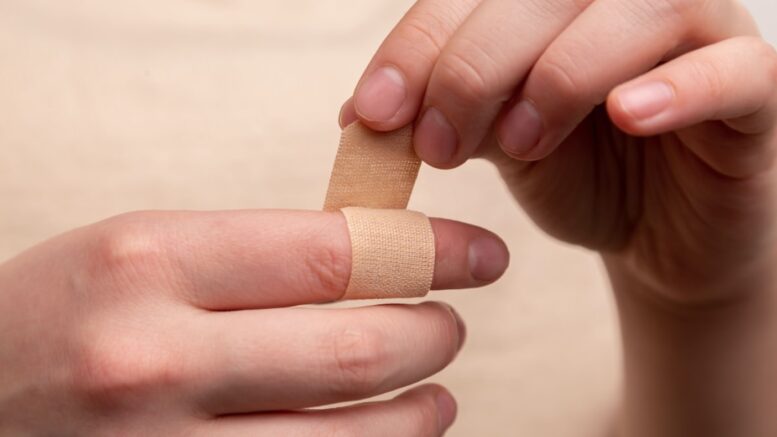Accidents can lead to stress and trauma that might overwhelm even the strongest individual. While it’s normal to feel isolated, scared, and helpless in the midst of an accident, there are multiple strategies you can use for healing physically and mentally.
By understanding how to address the emotional aftermath of injury while simultaneously dealing with physical pain, you will have a greater sense of hope in achieving long-term health and recovery. Let’s get started!
Consult a personal injury lawyer
If you’ve been in an accident and you believe it wasn’t your fault, it’s important to consult a personal injury lawyer. Generally, motorcycle accidents are among the most catastrophic, as they can leave you with serious injuries that require extensive medical treatment and rehabilitation. So, a lawyer who specializes in personal injury cases can help you navigate the legal system and ensure that you receive the compensation you deserve.
Furthermore, they help you understand your rights and options, and they can work with you to build a strong case that demonstrates the negligence of the other party. Don’t suffer in silence after an accident — contact a personal injury lawyer today to learn about your legal options.
Acknowledge your emotions
After experiencing an accident, it’s common to feel a range of emotions. Sometimes you may feel a sense of shock, denial, or confusion. At other times we may be consumed by grief, anger, or anxiety. However, it’s important to remember that experiencing these emotions is completely valid and a normal part of the healing process.
Acknowledging and processing your emotions is key to moving forward and can provide relief and comfort during a difficult time. Don’t be afraid to lean on your support system, whether it’s friends, family, or a professional counselor. Remember that there is no right or wrong way to feel and there is no set timeline for healing. Take things at your own pace and be kind to yourself as you navigate this challenging chapter in your life.

Identify the people who can support you
Going through the aftermath of an accident can be overwhelming and isolating, but know that you don’t have to face it alone. It’s important to identify the people who can support you during this difficult time.
Your family and friends can be a great source of emotional support, offering a listening ear and a shoulder to lean on. However, you should also consider reaching out to professionals who can help you navigate the practical and legal aspects of the aftermath — this includes lawyers, insurance agents, and healthcare providers. Remember, seeking support is a sign of strength, not weakness, and can be a crucial step toward healing and recovery.
Prioritize your self-care
After an accident, it’s crucial to prioritize your self-care. Make sure to get plenty of rest to allow your body to recover from any physical injuries and to reduce stress levels. Eating nutritious meals packed with vitamins and nutrients is also essential for helping the body heal properly.
Instead of focusing solely on what your body needs, don’t forget to make time for activities that you enjoy. Whether it’s reading a book, watching a movie, or practicing a hobby, engaging in activities that bring joy can reduce stress and improve your overall mental health. Remember, self-care is not a selfish act but a necessary step towards recovering and healing after such a catastrophic event.
Remain as active as possible
After experiencing a traumatic event like an accident, it is normal to feel overwhelmed and stressed. However, remaining as active as possible can alleviate these negative feelings and boost positive energy.
Exercise is an excellent way to manage stress post-accident, and it releases endorphins that improve mood. Low-impact physical activity like gentle stretching or walking can be incredibly effective. Exercise helps with both the emotional aftermath and physical healing.
Staying active will improve blood circulation, increase flexibility, and reduce muscle soreness. So, embrace movement as a form of self-care and take care of your body and mind.
Reconnect with yourself by exploring spiritual practices
After experiencing an accident, it’s common to feel disconnected from your body and mind. That’s why incorporating spiritual practices like yoga and meditation into your recovery journey can be incredibly beneficial in helping you reconnect with yourself.
It’s no secret that yoga and meditation have been found to reduce stress, anxiety, and depression, while also increasing feelings of self-awareness, self-acceptance, and inner peace. These practices encourage mindfulness, which allows you to focus on the present moment and let go of any negative emotions or thoughts. Through regular practice, you’ll learn to be more in tune with your body and its sensations, as well as your thoughts and emotions.
Reconnecting with yourself through yoga and meditation is a powerful tool for those who have experienced an accident or other traumatic event. Let yourself be open to the potential healing benefits of these spiritual practices, and take the time to prioritize your own well-being.
Focus on the present moment
In the aftermath of an accident, it’s not unusual to worry about the impact on your future. However, remember that dwelling on hypothetical outcomes can prevent you from fully healing and recovering in the present moment.
Instead, make a conscious effort to focus on what you can do right now to take care of yourself and get the support you need. This might mean seeking medical attention, finding a therapist or support group, or simply taking time to rest and recharge. Accepting the current reality can be challenging, but it can also be an opportunity to cultivate resilience and compassion for yourself and others.
Drink lots of water
Many people overlook the importance of staying hydrated during the recovery process. Water flushes out toxins from the body and keeps the joints lubricated, which can help reduce pain and inflammation. It also keeps the body’s cells functioning properly, which is vital for the healing process. So, if you want to recover from an accident as quickly as possible, make sure you’re drinking plenty of water every day.
Conclusion
Developing a plan to manage your emotional, physical, and spiritual health will help you cope with the aftermath of a traumatic experience. Reach out for support when needed, prioritize self-care by getting enough rest and healthy nutrition, hoping in physical activity or light exercises to keep stress at bay, and take time for various spiritual practices. Most importantly, stay away from worrying about the future as it is impossible to know how things will turn out anyway. Remember — hydration is key; drink lots of water throughout the day to benefit from its many healing elements.
Acknowledge where you are in your journey without judgment — each person’s feelings and experiences are valid. With patience, dedication, and compassion toward yourself, you will make it through these challenging times.
